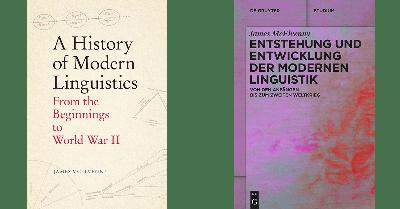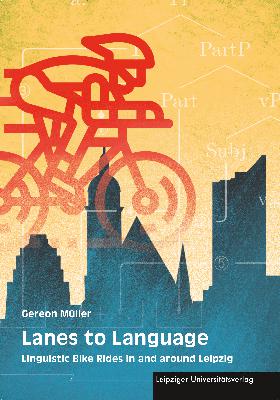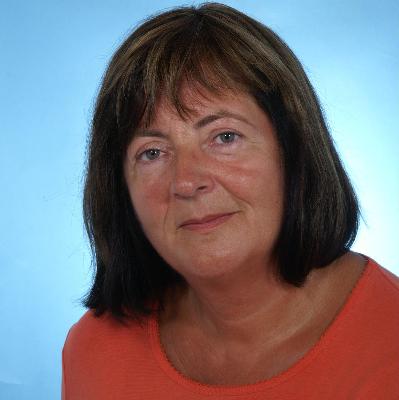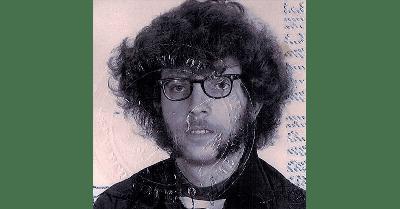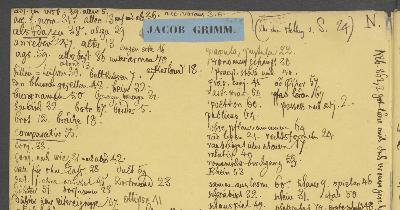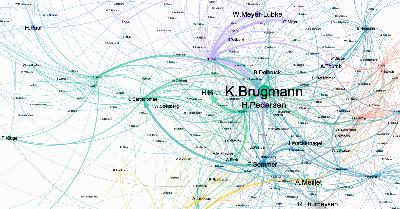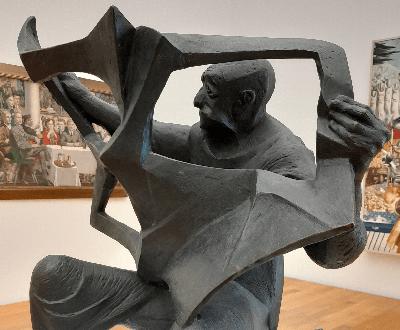Podcast episode 48: A History of Modern Linguistics
Description
In this interview, Randy Harris interviews James McElvenny about his recent book A History of Modern Linguistics.
<figure class="wp-block-audio"></figure>
Download | Spotify | Apple Podcasts | YouTube
References for Episode 48
McElvenny, James. 2024. A History of Modern Linguistics: From the beginnings to World War II. Edinburgh: Edinburgh University Press.
McElvenny, James. 2025. Entstehung und Entwicklung der modernen Linguistik: Von den Anfängen bis zum Zweiten Weltkrieg. Berlin: De Gruyter.
Transcript by Luca Dinu
JMc: Hi, I’m James McElvenny, and you’re listening to the History and Philosophy of the Language Sciences Podcast, online at hiphilangsci.net. [00:28 ] There you can find links and references to all the literature we discuss. [00:32 ] Today we’re going to try something new, and that is that I’m going to become the interviewee, [00:38 ] so our interviewer today is Randy Harris, and I’ll throw over to him right away, and he can take us from here. [00:45 ]
RH: Thanks, James. [00:46 ] Just to dispel the mystery for everybody as to why we’ve switched over, it’s because we’re going to get a chance to talk about your fairly recent book, A History of Linguistics: From the Beginnings to World War II, and I’m really pleased to have the opportunity. [00:59 ] It’s a great book. [01:00 ] It’d be a great textbook because it’s a smooth, efficient read but still quite detailed for students’ needs, but also just a really interesting read for linguists in general. [01:11 ] I learned a lot, and I’m sure everybody would. [01:15 ] I also wanted to mention, before we get started, another podcast that most listeners probably know about, Ingrid Piller’s Language on the Move. [01:23 ] The April 10th episode back in 2024 also was about your book, and I’d recommend people go listen to that. [01:29 ] There’ll be some overlap obviously, but lots of new stuff as well, so… [01:34 ] All right, let’s get started. [01:36 ] We’ll start with the most obvious question: What are the beginnings, and what is it that begins? [01:42 ] You start with William Jones’ 1786 lecture to the Asiatic Society of Calcutta, which is a familiar starting point for the history of modern linguistics, but then you set it aside fairly quickly, so why don’t you tell us what begins and when it begins? [02:00 ]
JMc: My book is really about the academic discipline of linguistics, and that starts when linguistics becomes institutionalized in universities. It becomes a subject with professors, students, textbooks, and so on. [02:14 ] This institutionalization happened in Germany in the early 19th century, when the first professorships for comparative grammar were created. [02:22 ] I believe Franz Bopp was the first to have this descriptor in his job title when he was called to the University of Berlin in 1821, [02:31 ] but as your question implies, historical-comparative linguistics has generally, in the received historiography, been cast as the first scientific linguistics. [02:43 ] This is a narrative you can hear even from the mid-19th century, when comparative linguistics was a young field, but it can be doubted whether comparative linguistics was really something revolutionary that swept away everything that came before. [02:58 ] Comparative linguistics didn’t come out of nowhere. [03:01 ] It had predecessors, and the approaches that came before it had their own scholarly and scientific validity. [03:09 ] My scepticism about the received narrative is not new, I should say. [03:13 ] Anna Morpurgo Davies, in her history of linguistics in the 19th century, also highlights it. And Anna Morpurgo Davies’ work was a major source for me in writing that book, and an inspiration for me in how to approach the topic. [03:29 ]
RH: Let’s go to the other end, then — not the end of linguistics, obviously, but the end of the book. [03:34 ] Why World War II? [03:37 ]
JMc: Yeah, so the book ends with World War II. [03:39 ] The reason for that is that, with World War II, the centre of gravity of linguistics, and of the whole scientific world, shifts from Europe to America. [03:48 ] There’s definitely continuity between pre- and post-World War II scholarship, but I think that the shift is significant enough to mark an end point. [03:58 ] So that’s the end of the book, but if I have the opportunity, I will continue the narrative. [04:02 ] My publisher does actually want a sequel, which I guess would go from World War II to the present, although I’m a bit dubious about committing to that project just yet. [04:12 ] There are two major problems, I think, with writing the history since World War II. [04:17 ] One is that there was a massive expansion in academia after World War II, even greater than the expansion that happened in the 19th century, [04:26 ] and as such, there’s just so many different schools and approaches in linguistics and related disciplines that would have to be dealt with in any history from this period after World War II, and it would be very difficult to decide what to include. [04:41 ] The problem of what to include was already one that I had in the book that I’ve just written, where I had to be very, very selective about whose work I decided to talk about. [04:53 ] What I wanted to do in writing the book was to provide a coherent narrative, so I tried to confine myself to the most influential figures and their ideas, [05:03 ] so these would be the scholars who set the tone for the field, the ones everyone talked about, whether that was to cite them favourably or to attack them. [05:13 ] And then the second problem with treating the history of linguistics after World War II is that it becomes contemporary history, and this is history that is still very much alive. [05:24 ] I mean, some of the historical figures that you’d be writing about are still alive, and many people are still actively invested in their ideas and in pursuing the research programs that they set up, so there’s no historical distance to the things that have happened since World War II, or not in the same way that there is with things before World War II. [05:46 ] So, for example, we can look back at things like behaviourism and early 20th-century programs of rational, social, and psychological reform, maybe even with a little condescension, and we can consider them with detachment, but things like the cognitive revolution and generative grammar are active research programs that people are working in right now. [06:10 ] The context of Cold War science that these programs emerged in may not exist as such right now as it did a few decades ago, but the infrastructure of research and scientific funding that we inhabit at our present moment is a direct descendant of these Cold War structures, even if it’s an increasingly starved and emaciated descendant, [06:34 ] so any commentary on these topics is inevitably an intervention into present-day active research, [06:42 ] so any narrative you construct would have a very different character to one about the history of linguistics up to World War II. [06:51 ]
RH: Of course. [06:52 ] You’d have to have some kind of stopping point. [06:54 ] You can’t take it right up to the current moment, to 2025, if things are changing so dynamically, with these pre-trained language models taking over the landscape and so forth. [07:06 ] You’d have to find some sort of pinch point to end it, and it’d just be almost arbitrary as where you’d stop it. [07:13 ]
JMc: Yeah, I guess so. Although, having said that, if you think about the sort of… the golden age of modern linguistic historiography [07:22 ] — so the sort of, the new dawn of the history of linguistics, which was probably in the 1970s, you know, with people like Konrad Koerner and Anna Morpurgo Davies and, you know, that whole gang… [07:35 ]
RH: Yeah. [07:35 ]
JMC: When they wrote their histories of linguistics, they often ended with Chomsky and the generative program, which was new. [07:43 ] You know, that was co

